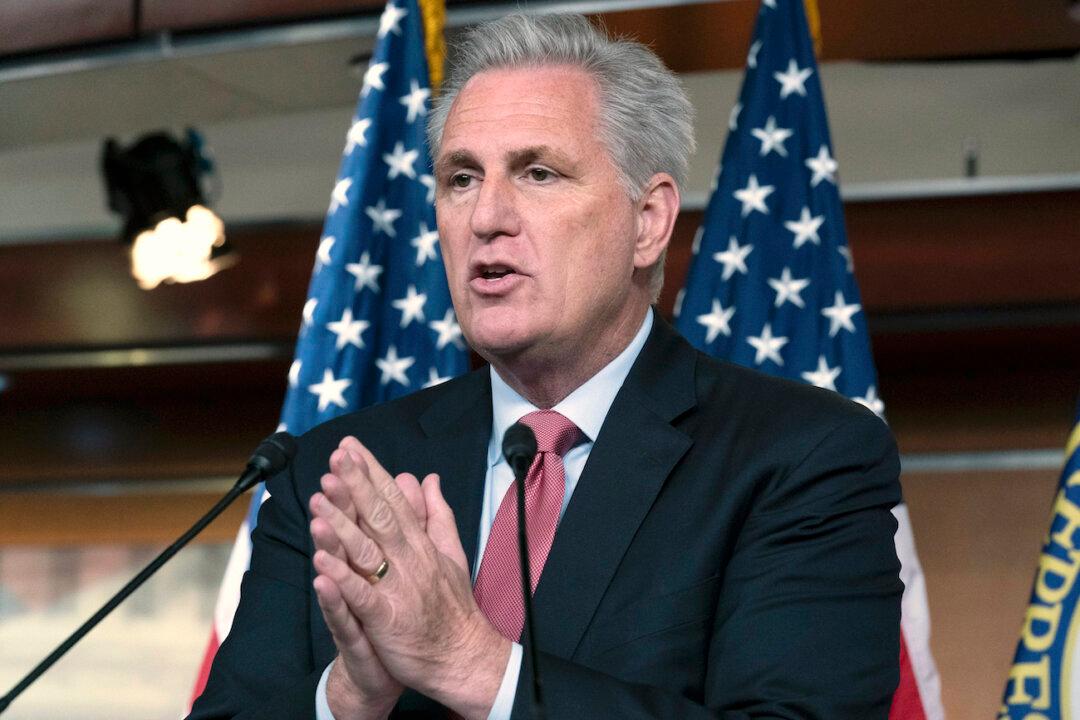During a weekly briefing on Friday, House Minority Leader Kevin McCarthy (R-Calif.) said it was wrong that Paul Pelosi, husband of House Speaker Nancy Pelosi (D-Calif.), was allowed to sell his shares of a computer chip manufacturer just before the House voted on a chips manufacturing bill.
McCarthy suggested Republicans would look into options for changing stock trading rules for lawmakers and their families





